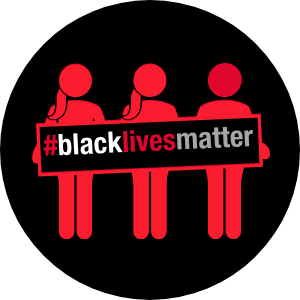
09.03.20 | Advocacy and Action, Racial Justice
As Christians, we are called to reflect God’s reconciling love to all we encounter. And as United Methodists, we recognize “our commitment to become faithful witnesses to the gospel, not alone to the ends of the earth, but also to the depths of our common life and work.” (United Methodist Social Principles Preamble)
Amidst the brokenness of today’s world, God calls us to be instruments of healing – transforming relationships and systems to pursue justice and peace among people, communities and nations.
And yet for too many of us, the tone and division of public discourse discourages us from using our voice or engaging our church and family in the important civic conversations of our day. But in the face of ongoing conflict, exploitation and oppression, we know that we cannot turn inward and silent. Instead, we must engage our neighbors, proclaim our faith values, and pursue justice in our communities.
This civic engagement can involve a variety of strategies and tactics. The Old and New Testaments are full of examples of faithful advocates whose experience both inspires and informs how we put our faith into action. Consider how God worked through:
- The midwives, Shiphrah and Puah, whose acts of civil disobedience saved children from Pharaoh’s decree.
- The reluctant Moses who, accompanied by his brother Aaron, challenged those in power and freed the Israelites from captivity.
- The prophets, from Amos to Jeremiah, who publicly proclaimed timeless truths and cast a faithful vision for the community.
- Queen Esther who used her access to power for the benefit of her people.
- Our Savior Jesus, who persuaded with parables, stood with the marginalized and directly resisted the empire of his day.
As United Methodists, we pursue ‘social holiness’ that is rooted in our biblical understanding, informed by John Wesley’s movement for change in English society, and built upon 250 years of work and witness by Methodists. Through acts of personal, social and civic righteousness we can reflect the reconciling love of Christ to the Church and society." (Taken from the introduction of Creating Change Together: A Toolkit for Faithful Civic Engagement from Church and Society.)
Additional Public Action Resources:
- How Whites Support Black Lives: Paul W. Hosch, along with other faith leaders, put together a checklist for how white people can enter the conversation to help.
- Beloved Community Toolkit by Dr. C. Anthony Hunt
- NEW: 8 Steps for Moving from Protest to Social Action Movement by Dr. C. Anthony Hunt
- Free and Fair Elections for All. Our Wesleyan tradition has a long tradition of fighting for voting rights.
- Help People Register to Vote
- Lawyers and Collars bring together faith leaders, working in partnership with attorneys, and civic engagement organizations to involve communities of faith in voting rights education and protection. The initiative is dedicated to protecting our most vulnerable citizens and protecting the right to vote for all.
- Watch Suppressed: A Fight To Vote
- Building Tomorrow with a Faithful Census Today. By being counted, you are making sure that your community has the representation and resources that it needs in the future.
- US 2020 Census Webinar with Rochelle Andrews. Come and “get the facts” about the 2020 census. Learn why and how your answers matter, how to increase census participation, and how to help create a just, safe, accessible, affordable, and equitable new world.
- Anti-Racism Preparedness Toolkit by Dr. Barbara Williams-Skinner and Rev. Michael McBride
